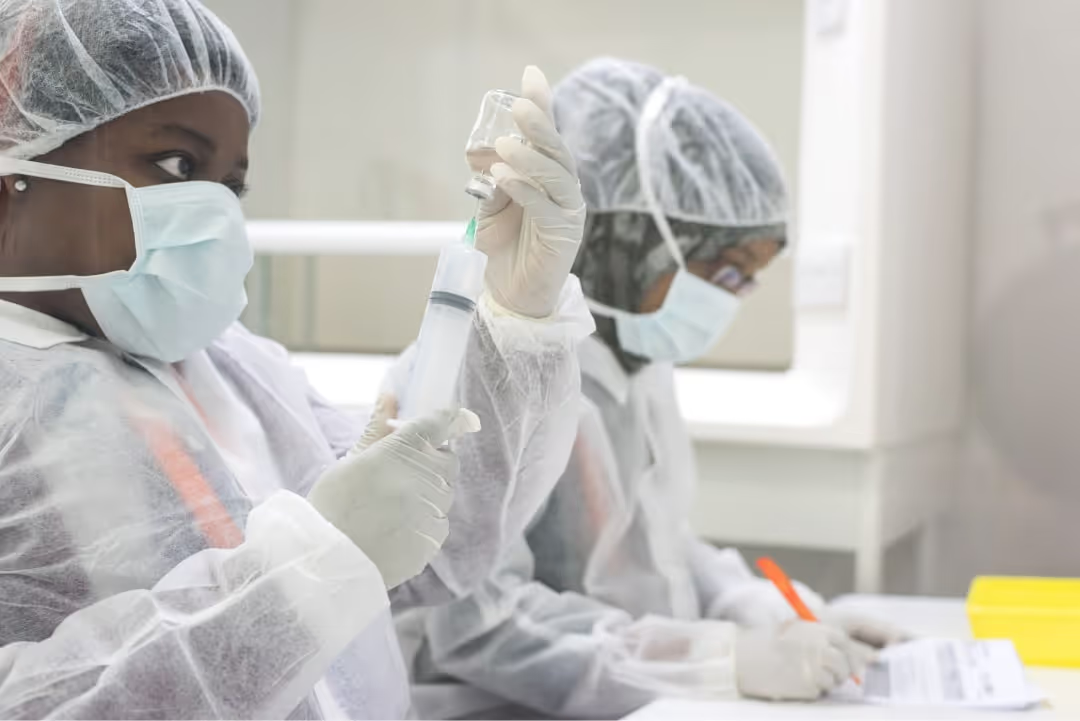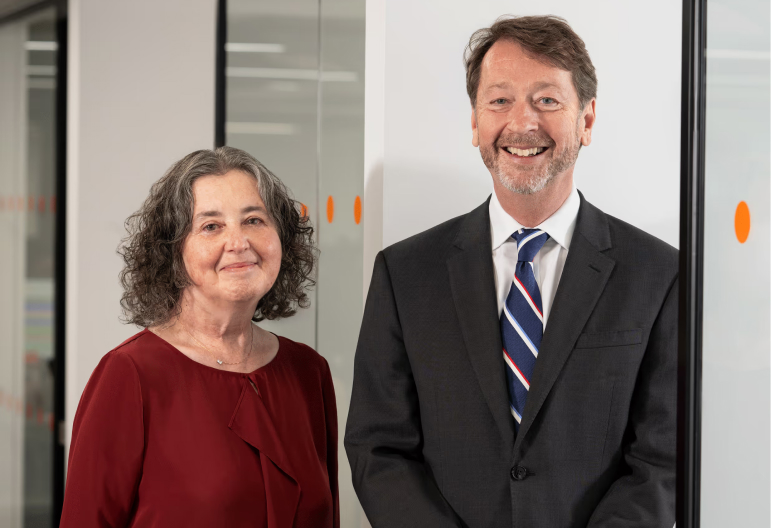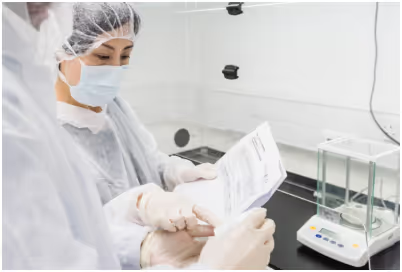A response to a Human Challenge statement in the BMJ by Nir Eyal and colleagues.
Nir Eyal and colleagues suggested that the initiation of COVID-19 challenge trials in response to the UK governments’ call in 2020 [1] remained relevant and important despite the development of approved vaccines and the introduction of an aggressive, UK-wide vaccination policy [2]. As representatives of the community actively conducting clinical trials with novel therapeutics, we feel our bioethicist colleagues may have overlooked a basic principle of the Declaration of Helsinki [3].
The authors described the potential benefits of challenge studies [2]. However, in the case of COVID-19, we feel it is currently impossible for investigators to ensure the safety of study participants, as per Article 5 of the declaration namely that “the subject's welfare must always take precedence over the interests of science and society”. Therefore, as per Article 9, it should be concluded that “ethical considerations must always take precedence over laws and regulations”. We have gained a better understanding of the aetiology, pathophysiology and genomic variability of the disease. There are many young, hitherto fit, people suffering from mild infections to potentially more severe and debilitating complications, as well as longer term sequelae [4]. No screening test pre-selects those less likely to suffer these consequences. Even if the risk is low, infection can have grave consequences and we have no effective treatments despite the encouraging results from several trials [5, 6, 7]. This differentiates COVID-19 challenge studies from other infection challenge studies, which can either be treated well conventionally (e.g., malaria) or where the disease is self-limiting without serious consequences (e.g., common cold). Moreover, it is increasingly evident that the vaccination programmes in Israel and UK are reducing new infections although we acknowledge this is in addition to lockdown strategies [8, 9]. Evidence for the effectiveness of a single vaccine dose strategy and the timing of the second dose was also an issue resolved to an extent with the UK’s 12-week delayed strategy [10, 11].
Do the ethical claims weigh up?
If the ethical claims for challenge studies are unfounded, how does the scientific reasoning hold up to scrutiny? Two key points of the argument posed by Eyal et al., are that challenge trials would recruit less than 1% of a field trial and that the overall risk would be 10-fold lower than live kidney donation. However, the first point overlooks the fact that those in field trials are being infected as a natural course of the pandemic (and test vaccines which might actually reduce morbidity) and those donating kidneys do so with a true understanding of the risks in the full knowledge they have a remaining kidney and are otherwise in good health. The use of infection challenge trials has its place in determining mechanisms however, a corollary in the infectious disease arena would be HIV, where such an infection challenge trial would never be ethically acceptable, even with highly active anti-retroviral therapies. Clearly, the ethics and scientific basis for such studies must be continually justified and reassessed.
Are challenge trials necessary when infections remain prevalent in communities?
Undoubtedly, challenge trials are more precise and provide a higher level of scientific detail and understanding than field trials for a single coronavirus strain. However, it should be remembered that:
- there remain a considerable number of infections within the wider population and while the pandemic continues, any number of small (prospective) studies can be used to answer the questions of transmissibility and/or vaccine superiority etc.;
- as we gain a better understanding of COVID-19, our priorities change and it is unlikely that studies, which can take considerable time to plan, approve and execute will keep up with the pace of ongoing research across the world;
- finally, viruses mutate and the conclusions from one challenge may not easily be transferable.
Are volunteers giving this due consideration?
In conventional first time in human trials, the risk to volunteers are first considered by regulatory agencies and ethics committees before being explained to the volunteer. It is generally accepted that volunteers then think about the risks and potential hardships they are agreeing to. One disturbing aspect of the UK Challenge Trial initiative has been the active engagement of the media and organisations such as 1DaySooner (who Eyal et al. represent). It could be argued that under such a spotlight volunteers may not give appropriate consideration to the risks, invalidating the informed consent process.
In conclusion, when the UK government first proposed these studies, no one would have predicted that nearly half of adults would be vaccinated just 1 year on from the pandemic onset in the UK. In addition to the Pfizer and AZ vaccines, there are also a range of vaccines in Phase III development as well cocktails of targeted monoclonal antibodies. We feel that the risk:benefit setting has changed markedly since the challenge trials were first proposed and strongly contest that they should be stopped. We suggest a period of open discussions among stakeholders as a matter of priority. Areas of definite interest to the wider research community revolve around the UK regulator, the MHRA. If the intention is to use this for medicines development, then the opinion of the agency would surely have been sought and they would have responded.
Affiliations:
1) Cambridge University Hospital NHS Foundation Trust, Cambridge, United Kingdom
2) Belfast, United Kingdom
3) Clinical Quality Management Solutions, Oxford, United Kingdom
4) Niche Science & Technology Ltd., Richmond, United Kingdom
5) Richmond Pharmacology Ltd., London, United Kingdom
6) St George’s University of London, SW17 0RE, United Kingdom
Biography
Joseph Cheriyan is Consultant Clinical Pharmacologist and Physician, Cambridge University Hospital and involved in running academic and industry sponsored Phase I/II clinical trials since 2002
Anthea Cromie has over 20 years of experience in early clinical research and currently oversees study design, conduct and interpretation of early phase clinical pharmacology studies.
Mike Hammond is Principal of Clinical Quality Management Solutions and has a broad variety of positions working on drug discovery programmes.
Tim Hardman is Chair of the Association of Human Pharmacology in the Pharmaceutical Industry and Managing Director of Niche Science & Technology Ltd, where he manages a multi-disciplinary team performing specialist CRO services.
Ulrike Lorch is Medical Director and co-founder of Richmond Pharmacology Ltd with specialist expertise in innovative adaptive study designs.
Jörg Täubel is a clinical pharmacologist with special interest in cardiology. He serves as CEO, Principal Investigator and Responsible Officer of Richmond Pharmacology Ltd.
References
[1] Callaway E. Dozens to be deliberately infected with coronavirus in UK ‘human challenge’ trials. Nature 2020 doi: 10.1038/d41586-020-02821-4
[2] Eyal N, Caplan A, Plotkin S. Human challenge trials of covid-19 vaccines still have much to teach us. thebmjopinion https://blogs.bmj.com/bmj/2021/01/08/human-challenge-trials-of-covid-19-vaccines-still-have-much-to-teach-us/ (accessed 2 March 2021)
[3] World Medical Association. Declaration of Helsinki: Ethical Principles for Medical Research Involving Human Subjects. JAMA 2013;310(20):2191–2194. doi:10.1001/jama.2013.281053
[4] Cunningham JW, Vaduganathan M, Claggett BL, et al. Clinical Outcomes in Young US Adults Hospitalized With COVID-19. JAMA Intern Med. 2021;181(3):379–381. doi:10.1001/jamainternmed.2020.5313
[5] The RECOVERY Collaborative Group. Dexamethasone in Hospitalized Patients with Covid-19. N Engl J Med 2021;384:693-704 DOI: 10.1056/NEJMoa2021436
[6] Salama C, Han J, Yau L. Tocilizumab in Patients Hospitalized with Covid-19 Pneumonia. N Engl J Med 2021;384:20-30 DOI: 10.1056/NEJMoa2030340
[7] Kalil AC, Patterson TF, Mehta AK. Baricitinib plus Remdesivir for Hospitalized Adults with Covid-19. N Engl J Med 2021;384:795-807 DOI: 10.1056/NEJMoa2031994
[8] Mahase E. Covid-19: Israel sees new infections plummet following vaccinations. BMJ 2021;372:n338
[9] Wise J. Covid-19: Is vaccination roll out reducing cases and deaths in the UK? BMJ 2021;372:n506
[10] Voysey M, Clemens SAC, Madhi SA, et al. Single-dose administration and the influence of the timing of the booster dose on immunogenicity and efficacy of ChAdOx1 nCoV-19 (AZD1222) vaccine: a pooled analysis of four randomised trials. The Lancet Volume 397, Issue 10277, p881-891
[11] Mahase E. Covid-19: Israel sees new infections plummet following vaccinations. BMJ 2021 Feb 4;372:n338. doi: 10.1136/bmj.n338. PMID: 33541863 DOI: 10.1136/bmj.n338
Authors:
Joseph Cheriyan1, Anthea Cromie2, Michael Hammond3, Timothy C. Hardman4, Ulrike Lorch5 and Jorg Taubel6 on behalf of the Association of Human Pharmacology in the Pharmaceutical Industry
















.avif)
